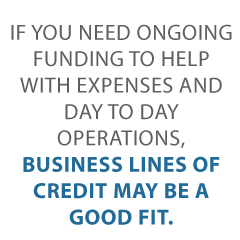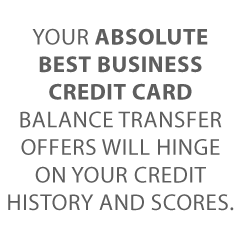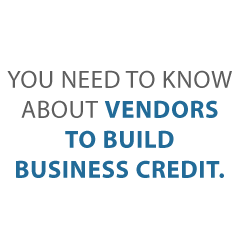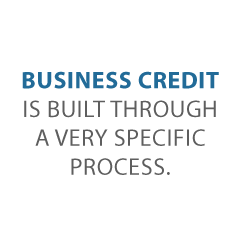The Very Best Startup Credit Card
We researched to find the best startup credit card for you. So, here are our top picks.
Per the SBA, small business credit card limits are a whopping 10 – 100 times that of personal cards!
This demonstrates you can get a lot more money with small business credit. And it also shows you can have personal credit cards at stores. So, you would now have an extra card at the same stores for your company.
And you will not need collateral, cash flow, or financial data to get company credit.
Best Startup Credit Card Advantages
Benefits can vary. So, make certain to pick the perk you like from this array of options.
Get the Best Startup Credit Card with 0% APR – Pay Zero!
Bank of America® Business Advantage Travel Rewards World Mastercard® Credit Card
The Bank of America® Business Advantage Travel Rewards World Mastercard® credit card has no yearly fee and comes with a 0% introductory APR on purchases for the initial nine months. Thereafter, the card has a 13.24 – 23.24% variable APR
Earn 3 points/dollar spent when you book travel via the Bank of America Travel Center and 1.5 points/dollar on all other purchases. You can get unlimited points and points will never expire.
Details
There is a 25,000-point sign-up bonus when you spend $1,000 in the first 60 days of starting the account. Cardholders get travel accident insurance, and lost luggage reimbursement.
They also get trip cancellation coverage, trip delay reimbursement and other perks.
There is no introductory rate for balance transfers. Also, bonus categories are limited.
Get it here: https://www.bankofamerica.com/smallbusiness/credit-cards/products/travel-rewards-business-credit-card/
JetBlue Plus Card
Consider the JetBlue Plus Card for one more offer of a 0% introductory APR
Earn six points/dollar on JetBlue purchases, two points/dollar at dining establishments and grocery stores. And get one point/dollar on all other purchases.
Details
Spend $1,000 in the first 90 days and pay the annual fee. So, then you can earn 40,000 bonus points. New cardholders get a 12 month, 0% introductory APR on balance transfers made in 45 days of account opening.
Afterwards, the variable APR on purchases and balance transfers is 17.99%, 21.99% or 26.99%, based on creditworthiness. Benefits include a free first checked bag and 50% savings on in-flight purchases.
There is a $99 annual fee for this card.
Get it here: https://cards.barclaycardus.com/cards/jetblue-card/
Grab the Best Startup Credit Card with No Annual Fee
Establish business credit fast with our research-backed guide to 12 business credit cards and lines.
Uber Visa Card
Check out the Uber Visa Card. Uber is the very first ride-sharing service to offer a credit card, in a partnership with Visa and Barclays.
The card offers 4% back per dollar spent at restaurants, takeout and bars, including UberEATS. Also, get 3% back on hotel, airfare and vacation home rentals. And earn 2% back on online purchases.
So, this includes retailers and subscription services like Uber and Netflix. And get 1% back on all other purchases. Each percent/point has a value of 1 cent. Redeem points for cash back, gift cards or Uber credits directly in the app.
By spending at least $500 in the initial 90 days, users can earn a $100 sign-up bonus. Cardholders spending at least $5,000 yearly are eligible to receive a $50 credit toward online subscription services.
Details
If you pay your cell phone bill with this card, you are insured up to $600 for cellphone damage or theft.
Cardholders are eligible for exclusive access to specific events and offers. Uber anticipates most of these offers will be available in major cities like New York, San Francisco, Los Angeles, Chicago and DC. There is no foreign transaction fee.
But there is no introductory rate. So the APR is a variable 16.99%, 22.74% or 25.74%, based on your creditworthiness. Cardholders with less than stellar credit will be on the higher end of the range.
Also, there are restrictions on Uber credits. To redeem points as credits in the Uber app, accumulate at least 500 points, or $5. Cardholders can convert a maximum of 50,000 points, or $500, per day.
Get it here: https://www.uber.com/c/uber-credit-card/
Costco Anywhere Visa® Business Card by Citi
Not taking Uber? Then you’ll need to fill your gas tank someway. Why not do so with the Costco Anywhere Visa® Business Card by Citi?
This card earns cash back with every purchase. Earn 4% cash back on the first $7,000 spent on eligible gas purchases annually (1% after that). Get 3% cash back at restaurants and on eligible travel purchases. Also, earn 2% cash back at Costco and Costco.com. And earn 1% cash back on all other purchases.
So keep in mind: the $0 yearly fee is only for Costco members. And an active Costco membership is required. Cardholders will get access to damage and theft purchase protection, extended warranty coverage and travel accident insurance.
Also, there is no sign-up bonus offered with this card.
Get it here: https://www.citi.com/credit-cards/credit-card-details/citi.action?ID=Citi-costco-anywhere-visa-business-credit-card
Ink Business Cash℠ Credit Card
Consider the Ink Business Cash ℠ Credit Card. Small businesses can get cash back with every single purchase. Spend $3,000 in the first three months from account opening. And you’ll get a $500 bonus cash back.
There is a $0 yearly fee with a 0% introductory APR for 12 months on purchases and balance transfers. Thereafter, the APR is a 15.24 – 21.24% variable.
The card includes travel and purchase coverage benefits. So, this includes an auto rental collision damage waiver and extended warranty protection.
Details
Earn bonus cash back on business categories. So, these include office supply stores, telecommunications, gas stations and restaurants.
Note: this card has a balance transfer fee. Pay 5% of the amount transferred or $5, whichever is greater. Also, there is a foreign transaction fee of 3%.
Get it here: https://creditcards.chase.com/small-business-credit-cards/ink-cash
United MileagePlus Explorer Business Card
Get a good look at the United MileagePlus Explorer Business Card.
Earn 2 miles/dollar with United and at restaurants, filling stations and office supply stores. All other purchases earn 1 mile/dollar. Earn a 50,000-mile sign-up bonus after spending $3,000 in the initial three months from account opening.
Benefits include priority boarding, a free first checked bag for you and a companion on the same reservation.
Details
Also, get two United Club passes annually. And get hotel and resort perks including upgrades. In addition, get early check-in and late checkout. And get an auto rental collision damage waiver.
Plus, get baggage delay insurance, lost luggage reimbursement, trip cancellation and interruption insurance. Finally, get trip delay reimbursement, purchase protection, price protection and concierge service.
After the first year, the card has an annual fee of $95. APR of 17.99% – 24.99%, based on creditworthiness.
Get it here: https://creditcards.chase.com/small-business-credit-cards/united-mileageplus-explorer-business
Starwood Preferred Guest® Business Credit Card from American Express
Another choice is the Starwood Preferred Guest Business Credit Card from American Express.
This card is for those who stay at Starwood Preferred Guest and Marriott hotels often. Earn six points per dollar of eligible purchases at participating SPG and Marriott Rewards hotels.
And earn four points per dollar at American restaurants, American gas stations, and on US purchases for shipping.
Also, earn four points to the dollar on wireless telephone services purchased directly from US service providers. For all other eligible purchases, earn two points per dollar.
Details
Get 75,000 bonus points when you spend $3,000 in the first three months of account opening. Benefits include free in-room premium internet access, Sheraton Club lounge access, and purchase protection.
Plus, you get car rental loss and damage insurance. And you get baggage insurance. There is also a global assistance hotline. And there is a roadside assistance hotline. And get travel accident insurance and extended warranty coverage.
The most significant issue is the annual fee. There is a $0 introductory annual fee for the first year, then it’s $95 after that. Plus, there is no 0% introductory APR. Instead, there is a 17.74 – 26.74% variable APR
Get it here: https://www.americanexpress.com/us/credit-cards/business/business-credit-cards/spg-amex-starwood-credit-card
Find the Best Startup Credit Card for Average Credit
Capital One® Spark® Classic for Business
For average credit, we like the Capital One Spark Classic for Business. It has no yearly fee. There are cash-back rewards. The card gets an unlimited 1% cash back on all purchases. There is an annual fee of $0.
With this card, you will get benefits including an auto rental collision damage waiver, and purchase security. And you also get extended warranty coverage. And you get travel and emergency assistance services.
But KEEP IN MIND: the ongoing APR is 24.74% variable APR. And the penalty APR is even higher, 31.15%. Also, there is no sign-up bonus. In addition, this card reports monthly to personal credit. It does report to business credit as well, but they generally require a personal credit check and will always report to personal credit.
Get it here: https://www.capitalone.com/small-business/credit-cards/spark-classic/
Reliable Low APR/Balance Transfers Business Credit Cards
Discover it® Cash Back
Have a look at the Discover it® Cash Back card. There is a 10.99% introductory APR for six months from date of first transfer. So, this is for transfers under this offer which post to your account by January 10, 2019.
After the introductory APR expires, your APR will be 14.99% to 23.99%. So, this is based on your creditworthiness. Your APR will vary with the market, which is based on the Prime Rate.
Details
You can get 5% cash back at different places every quarter. So, these are establishments like gas stations, grocery stores, restaurants, Amazon.com, or wholesale clubs. But this is up to the quarterly maximum each time you activate. In addition, automatically earn unlimited 1% cash back on all other purchases.
You will earn an unlimited dollar-for-dollar match of all the cash back you have earned at the end of your first year, automatically.
Get it here: https://www.discover.com/credit-cards/cash-back/it-card.html
Get the Best Startup Credit Card to Build Credit
Discover it® Student Cash Back
Be sure to look at the Discover it® Student Cash Back card. It has no yearly fee. The credit card also has a six-month introductory period of 0% APR on purchases. And there is an APR of 14.99 – 23.99% variable on all purchases after that period.
One special feature is that it provides an incentive for scholars to maintain good grades with a $20 statement credit. If scholars earn a GPA of 3.0 or better each school year, the card will award the $20 statement credit annually for up to five years.
Details
Use this credit card to build personal credit. While this is a personal credit card versus a company card, for new credit users, their FICO scores will matter. And this credit card offers an excellent way to raise FICO while also getting rewards. Better personal credit can also, often, be the key to unlocking online lending.
You can get 5% cash back at different places each quarter like grocery stores, gas stations, restaurants or Amazon.com up to the quarterly maximum. After that, this credit card offers unlimited 1% cash back on all purchases.
In the first year, all cash back rewards are matched 100%.
Downsides include a cash advance fee of either $10 or 5% of the amount of each cash advance, whichever is greater. And although they waive the first late payment fee, a fee of up to $37 applies on all other late payments. There is also a returned payment fee of up to $37.
Get it here: https://www.discover.com/credit-cards/cash-back/it-card.html
Ironclad Secured Credit Cards
Wells Fargo Business Secured Credit Card
Have a look at the Wells Fargo Business Secured Credit Card. It charges a $25 annual fee per credit card (up to 10 employee cards). It also requires a minimum security deposit of $500 (up to $25,000) and it is meant to help cardholders build or rebuild their credit.
Select this credit card if you want to get 1.5% per dollar in purchases with no limits or earn one point for every dollar in purchases. You also get 1,000 bonus points for every month your company makes $1,000 in purchases on the card.
Details
Also, you get free FICO scores every month. There are no foreign transaction fees. It is possible to upgrade to unsecured credit. Your account is regularly reviewed. And you may become eligible for an upgrade to an unsecured card with responsible use over time. Approval is not guaranteed and depends on factors including how you manage this and your other accounts.
APR is the current prime rate plus 11.90%. There is no introductory APR period and no sign-up bonus. This is not a credit card for balance transfers.
Get it here: https://www.wellsfargo.com/biz/business-credit/credit-cards/secured-card/
Get the Best Startup Credit Card for Jackpot Rewards
Chase Sapphire Preferred® Card
Check out at the Chase Sapphire Preferred® Card for travel points.
You can get two points per dollar spent on travel and dining at restaurants. And you can earn one point per dollar on all other purchases. Points can be redeemed for cash back, gift cards, or travel.
The card’s benefits include trip cancellation insurance, travel and emergency assistance services. They also include an auto rental collision damage waiver, purchase protection and extended warranty protection.
When you spend $4,000 in the first 3 months from account opening, you will earn 50,000 bonus points. These points are worth $625 if you redeem them for travel through Chase Ultimate Rewards.
Details
You can get an unlimited two points per dollar for travel and dining at restaurants. And after that get one point per dollar for all other purchases. Points will transfer equally to 13 leading frequent travel programs with partners. So, these include British Airways, Southwest Airlines, United, and Marriott.
There is no 0% introductory APR on purchases or balance transfers. The card’s standard APR is 17.74 – 24.74% variable. Also, the card has an annual fee of $0 introductory for the first year. And then it skyrockets to $95.
Get it here: https://creditcards.chase.com/rewards-credit-cards/chase-sapphire-preferred
Establish business credit fast with our research-backed guide to 12 business credit cards and lines.
Ink Business Preferred ℠ Credit Card
Get a look at the Ink Business Preferred Credit Card from Chase. Cardholders earn 3 points for every dollar spent on travel, shipping, internet, cable, phone and qualifying advertising with the card. So, this is up to $150,000 each year. And all other purchases earn an unlimited one point per dollar spent.
This is a Visa card.
Cardholders get benefits like purchase protection, trip cancellation or interruption insurance. They also get cellphone protection. And they get extended warranty coverage. And they get an auto rental collision damage waiver.
Details
Get 80,000 bonus points when you spend $5,000 in the first 3 months from account opening. There is an annual fee of $95. You can add employee cards at no additional cost.
This card only offers 3 points per dollar to a limit of $150,000 a year. So, this is for travel, shipping, internet, cable, phone and qualifying advertising. All other purchases earn an unlimited flat rate of one point per dollar. And there is no introductory APR
Get it here: https://creditcards.chase.com/small-business-credit-cards/ink-business-preferred
Get the Best Startup Credit Card for Cash Back
SimplyCash Plus Business Credit Card from American Express
Check out the SimplyCash Plus Business Credit Card from American Express. There is a $0 yearly fee. And there is a 0% APR on purchases So this is for the first 15 months an account is open.
But when the introductory period runs out, the APR for purchases is 14.24 to 21.24%. So, this is variable and based on creditworthiness.
Details
This credit card has various benefits. These include purchase protection, car rental loss and damage insurance. And they also include a baggage insurance plan, extended warranty coverage and a global assist hotline.
Also, get 5% cash back at US office supply stores and on wireless phone services. So, these must be bought from American providers. But this applies to the initial $50,000 of annual spending. Then, you get 1% cash back.
You also get 3% cash back on spending category of your choice. So, this is from eight distinct categories. They include airfare, gas, advertising and computer purchases. But it applies to the first $50,000 of yearly spending. Then, you get 1% cash back.
Cash-back bonuses are automatically credited to the customer’s billing statement.
Note: you cannot use this card for balance transfers. There is a foreign transaction fee of 2.7%. The card charges up to $38 in late fees. And the returned check fee is also $38. The penalty APR is 29.99%.
And, it kicks in if you have two or more late payments within 12 months. It can also apply if you fail to make the minimum payment on time or have a returned payment.
Get it here: https://www.americanexpress.com/us/small-business/credit-cards/simply-cash-plus-business-credit-card/44279
Capital One® Quicksilver® Card
Check out the Capital One® Quicksilver® Card. It offers flat-rate rewards of 1.5% on all purchases. There are no limits to the amount of cash back rewards which cardholders can earn. Also, the card has a $0 yearly fee.
New cardholders have a 0% APR on purchases and balance transfers for the first 15 months after opening the account. And after that they have a 14.74 – 24.74% (variable) APR after that.
A cash bonus of $150 is available for those who make at the very least $500 in purchases within 3 months of account opening.
Details
Also, cash back rewards do not expire for the life of the account. And there is no limit to how much you can earn.
This credit card also offers travel accident insurance. And you get an auto rental collision damage waiver. There are no foreign transaction fees. And there is extended warranty coverage.
Downsides are the flat reward rate, not allowing for any more than that. And the higher APR after the first 15 months.
Get it here: https://www.capitalone.com/credit-cards/quicksilver/
Establish business credit fast with our research-backed guide to 12 business credit cards and lines.
Get the Best Startup Credit Card for Luxurious Travel Points
Capital One® Spark® Miles for Business
Be sure to check out the Capital One® Spark® Miles for Business card. With this card, you can get 2 miles per dollar on all purchases. When you spend $4,500 within the first 3 months of opening an account, you can earn 50,000 miles. So, that is worth $500 in travel.
Benefits for cardholders include an auto rental collision damage waiver, and purchase security. And they also include extended warranty coverage. And you get travel and emergency assistance services.
Cardholders will pay $0 introductory for first year. But they will pay $95 after that for the annual fee.
There is no 0% APR for purchases or balance transfers with this card. The APR is 18.74% (variable).
Get it here: https://www.capitalone.com/small-business/credit-cards/spark-miles/
IHG ® Rewards Club Premier Credit Card
Have a look at the IHG ® Rewards Club Premier Credit Card. it earns hotel rewards worldwide. For each dollar spent at participating IHG hotels, earn 10 points. Earn two points per dollar spent at gas stations, grocery stores and restaurants.
And all, other purchases earn one point. New cardholders can earn an 80,000-point sign-up bonus when they spend $2,000 in the first three months of account opening.
Details
This card offers a free one-night hotel stay annually. Plus, there is a wide array of benefits like travel and purchase coverage and an upgrade to Platinum Elite status with the IHG Rewards Club. The club offers complimentary room upgrades when available and guaranteed room availability.
The biggest issue is that the card does not offer a zero percent APR introductory rate. And the standard APR is 17.99 – 24.99% variable. Also, the annual fee is $89.
Get it here: https://creditcards.chase.com/a1/ihg/premiernaep
Marriott Rewards® Premier Plus Credit Card
This card earns six points/dollar spent at participating Marriott and SPG hotels. And get two points/dollar on all other purchases.
Spend $3,000 in the initial three months from account opening and get two free night awards (each valued up to 35,000 points).
Cardholders get access to perks including a free one-night stay each year after account anniversary. Also get travel and purchase protection. So, this includes free standard in-room Wi-Fi and priority late checkout.
Details
Perks include baggage delay reimbursement, and lost luggage reimbursement. There is also trip delay reimbursement. And there is purchase protection. And also, there are concierge service and automatic Silver Elite status, which includes a 20% bonus on points.
Spend $35,000 each account year, and be upgraded to Gold Elite status. So, that includes a complimentary room upgrade, free daily breakfast and 4 PM late checkout.
There is an annual fee of $95. The APR is a 17.99– 24.99% variable.
Get it here: https://creditcards.chase.com/marriott/apply
The Best Startup Credit Card for You
Your absolute best startup credit card will hinge on your credit history and scores.
Only you can select which features you want and need. So, make sure to do your homework. What is excellent for you could be disastrous for another person.
And, as always, make sure to build credit in the recommended order for the best, fastest benefits.
The post Best Startup Credit Card appeared first on Credit Suite.
















